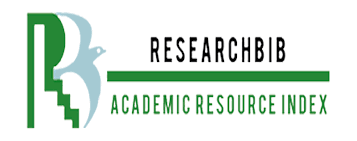Parenting guidelines in the rural sector
DOI:
https://doi.org/10.35622/j.rep.2021.02.004Keywords:
Family, breeding guidelines, experience, childhood, emotionAbstract
This article analyzes the experiences in child rearing patterns in the rural sector, a topic of great relevance at the national level due to its sociodemographic and psychosocial conditions, focused on some research related to the topic, recognizing that the Parenting guidelines change and are modified according to the evolutionary, sociocultural, educational, psychological and affective development of families, influencing the process of formation and construction of the identity of minors in their early years. Families are important to guide values, norms, principles, guidelines in infants and that will allow an adequate and balanced development of personality and prevention of identity problems, depression, aggressiveness and low self-esteem.
References
Aguirre, E. (2000). Socialización y prácticas de crianza. En E. Aguirre y E. Durán.
Socialización: Prácticas de Crianza y cuidado de la salud. Bogotá, D. C.: CES. Universidad Nacional de Colombia.
Barahona, M. (2012). Familias, hogares, dinámica demográfica, vulnerabilidad y pobreza en Nicaragua, 7-59. Disponible en: http://www.eclac.org/publicaciones/ xml/3/26013/lcl2523-P.pdf
Beriain, J. (1990). Representaciones colectivas y proyecto de modernidad. Barcelona: Anthropos.
Berk, L. (2004). Awakening Children’s Minds: How Parents and Teachers Can Make a Difference. Oxford University Press.
Cabrera, V., Guevara, I. & Barrera, F. (2006). Relaciones maritales, relaciones paternas y su influencia en el ajuste psicológico de los hijos. Acta Colombiana de Psicología, 9 (2), 115-126.
Cole, P. M., Bruschi, C. J., & Tamang, B. L. (2002). Cultural differences in children’s emotional reactions to difficult situations. Child Development, 73(3), 983-996
Constitución política de Colombia Art, 44, Julio de 1991(Colombia).
Código de Infancia y adolescencia, Art 3, 10, 22, 23,39, Ley 1098 de 2006 (Colombia).
Clerici, Gonzalo; García, María Julia. Autoconcepto y Percepción de pautas de crianza en niños escolares. Aproximaciones teóricas, anuario de investigaciones, vol. XVII, 2010, pp. 205-212.Buenos Aires, Argentina.
Mansilla, M. (2000) Etapas del desarrollo humano Revista de Investigación en Psicología, Vol.3 No. 2.
Mendoza-Nápoles CA, Maldonado SEB. Revisión de las teorías y modelos incidentes en el desarrollo. Rev Elec Psic Izt. 2019; 22(1):1-24.
Myers, R. (1994). Prácticas de crianza. Bogotá: CELAM-UNICEF
Eisenberg, N., Fabes, R. A., Shepard, S. A.,Ghrie, I. K., Murphy, B. C., & Reiser,M. (1999). Parental reactions to children’s negative emotions: Longitudinal relations o quality of children’s social functioning. Ld. Development, 70(2), 513-534.
Enciclopedia británica (2009). La familia, conceptos, tipos y evolución.
Consultado el 1 de mayo de 2014. Disponible en: http://cvonline.uaeh.edu.mx/Cursos/ BV/S0103/Unidad%204/lec_42_LaFam_ConcTip&Evo.pdf
Eraso, J, Bravo, Y & Delgado, M. (2006). Creencias, actitudes y prácticas sobre crianza en madres cabeza de familia en Popayán: un estudio cualitativo. , 23-40.
Erikson, E. H. (1982). The life cycle completed. New York: Norton.
Fabes, R. A., Leonard, S. A., Kupanoff, K., & Martin, C. L. (2001). Parental coping with children’s negative emotions: Relations with children’s emotional and social responding. Child Development, 72,907-920.
Freud, A., El yo v lm mecanismos de defensa, Paidós, Buenos Aires, 1954
Gallego,T.(2012)familias, infancias y crianza: tejiendo humanidad. Universidad católica del norte N°35. Medellín. Retomado de http://wwwredalyc.org/pdf/1942/194224362005.pdf
Gligo, N. (2001). La dimensión ambiental en el desarrollo de América Latina. Santiago: Cepal.
Gómez, S. (2003). La nueva ruralidad: ¿qué tan nueva? Santiago: LOM.
Harris, P. L., Olthof, T., Meerum Terwogt, M., & Hardman, C. (1987). Children’s knowledge of situations that provoke emotion. International Journal of Behavioral Development, 10, 319-343.
Harter, S. (1993). Developmental changes in self-understanding across the 5 to 7 shift. In A. Sameroff & M. Haith (Eds.), Reason and responsibility: The passage through childhood. Chicago: University of Chicago Press
Henao, G., Ramírez, C. & Ramírez, L. (2007). Las prácticas educativas familiares como facilitadoras del proceso de desarrollo en el niño y niña. El Ágora, 7 (2), 233-240.
Loreto, A., Pinilla, I. (2017). Enfoques metodológicos en la investigación educativa: Método empírico, cualitativo y fenomenológico. Recuperado de: http://www.guayanavirtual.web.ve/journaldata/journals/1/articles/7/public/7-103-2-PB.pdf
Published
Issue
Section
License
Copyright (c) 2021 Asbleydi Bejarano, Luz Alba, Nancy Pineda (Autor/a)

This work is licensed under a Creative Commons Attribution 4.0 International License.
La Revista Estudios Psicológicos del Instituto Universitario de Innovación Ciencia y Tecnología Inudi Perú está sobre una licencia internacional Creative Commons Atribución 4.0. Lo que permite que los archivos sean de libre acceso y distribuidos libremente.
LOS AUTORES RETIENEN SUS DERECHOS:
- Los autores retienen sus derechos de marca y patente, y tambien sobre cualquier proceso o procedimiento descrito en el artículo.
- Los autores retienen el derecho de compartir, copiar, distribuir, ejecutar y comunicar públicamente el artículo publicado en la Revista Estudios Psicológicos (por ejemplo, colocarlo en un repositorio institucional o publicarlo en un libro), con un reconocimiento de su publicación inicial.
- Los autores retienen el derecho a hacer una posterior publicación de su trabajo, de utilizar el artículo o cualquier parte de aquel (por ejemplo: una compilación de sus trabajos, notas para conferencias, tesis, o para un libro), siempre que indiquen la fuente de publicación (autores del trabajo, revista, volumen, número y fecha).



















